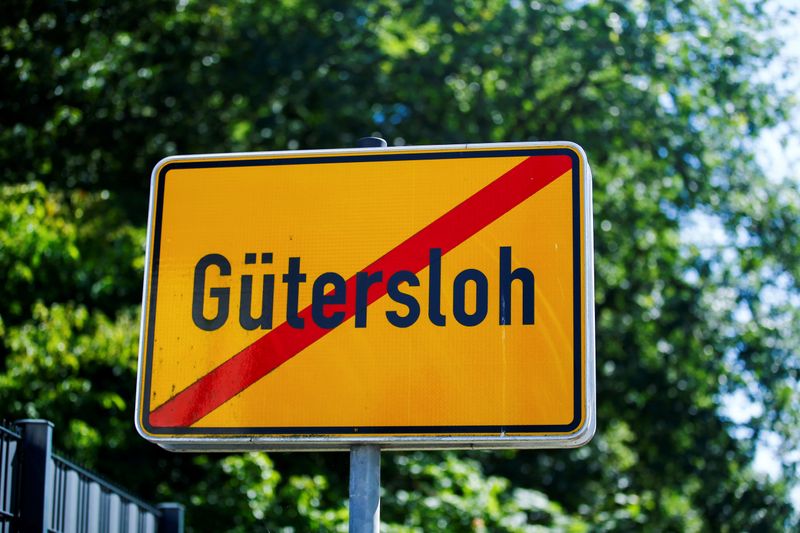BERLIN (Reuters) - Concern about poor working conditions in the meat industry after repeated coronavirus outbreaks at slaughterhouses may speed up a trend among Germans to opt for higher-priced, better quality meat and vegetarian and vegan substitutes.
Germany, Europe's biggest pork producer and home to 1,500 varieties of sausage, has seen meat consumption decline for years as people buy less of it driven by health reasons and concerns for animal welfare.
The coronavirus pandemic may have added a further reason to the list, after outbreaks at slaughterhouses and meat packing plants drew the public's attention to the industry's use of subcontracted workers from eastern Europe who live in cramped accommodation.
"We see a trend away from very cheap meat and towards higher quality and substitute products," said Robert Kecskes, an analyst from the market research company GfK.
"It is not only about animal welfare, it is about human welfare, and that will become entrenched in people's minds. In this respect, the meat industry will definitely have a hard time in the near future."
Some 600,000 people around Guetersloh, in the western state of North Rhine-Westphalia, were forced back into lockdown on June 23 after more than 1,500 workers at the Toennies slaughterhouse and meat packing plant tested positive for COVID-19.
The plant has provisionally been ordered to close until July 17. Health and safety officials continue to inspect it and are negotiating with the company over a proposed new hygiene plan.
On Sunday, Toennies came under fire from politicians for requesting government support to cover quarantined workers' pay.
German Agriculture Minister Kloeckner announced after the outbreak plans for a raft of measures to address what she calls the "serious consequences" of downward meat price pressures on animal welfare, working conditions and farmers' incomes, even at the risk of driving business abroad.
Sales of processed meat have steadily fallen in Germany in the last five years, according to market data firm Euromonitor, while sales of meat substitutes have risen 12% over the same period to $234 million in 2019.
Ruegenwalder Muehle, a company that previously specialised in cold cuts but has transformed itself into Germany's biggest producer of meat substitutes, said sales of its vegetarian and vegan products had jumped 50% so far this year, after a rise of 44% in 2019.
Germany has a long tradition of environmentalism and the Greens party has soared in the polls in recent years to overtake the Social Democrats as the country's second most popular, with latest surveys putting them on about 19%.
The number of vegetarians in Germany has doubled in the last five years to about 7% of the population, with vegans making up 2%, while almost a third of households are trying to reduce their meat consumption, according to GfK.
Joerg Erchinger, a butcher in the Prenzlauer Berg area of Berlin, said most of his customers opt for his products because he offers exclusively meat from humanely farmed animals.
"The continuous availability has caused customers to stop thinking about where their meat, their cucumbers, their fruit and their vegetables come from, and that has made it an everyday product like a box of screw or nails," he told Reuters TV.

But, he said, some people simply want an "honest sausage".